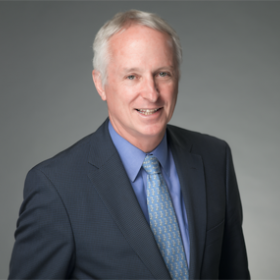
Understanding Lebanon
Ambassador Cameron Munter, CEO & President of the EastWest Institute, following a series of high-level dialogues in Lebanon the week of November 27, shares his insights and observations on the political scenario evolving in the country and across the region.
Q: Lebanon is again making front page news. What is at the root of the unfolding political crisis in Lebanon?
There's a basic Lebanese crisis: it's a diverse country, but one which (unusual for the region) has a functioning constitution that seeks to share power and prevent conflict. The immediate Lebanese crisis occurred when Prime Minister Hariri, in Saudi Arabia (where his family has traditionally had extensive business interests) announced on Saudi TV that he was resigning. Upon his return to Lebanon, he has worked with other leaders to remain in power, and is almost certain to keep his job. In a broader sense—will this lead to tension or even violence? I don't think so. Lebanon is resilient, and the whole episode has cemented support, even among Shia Muslims and Christians, for Hariri, a Sunni Muslim.
Q: Based on your meeting with President Michel Aoun, what is the current sentiment about the ongoing situation and prospects for engaging the key actors and fostering stability in the country, and thus the wider region?
President Aoun, as well as other key leaders in Beirut, told us that they expect things to remain calm. There are differences of opinion, to be sure. But all parties told us they seek stability at this time.
What may we expect to happen? In the short run, there's an “era of good feeling”: the Lebanese have rallied around Hariri and there may be a month or two in which accords may be reached. But the leadership is aware that external issues—in Israel, on the peninsula, to the north—will have an as yet unknown impact.
Q: The primary question on people’s mind is whether Prime Minister Hariri is likely to remain in office? Beyond that what lies over the horizon? Is there a real concern of escalating tensions between Iran and Saudi Arabia, or Hezbollah and neighboring Israel?
Hariri will remain in office. It seems clear that efforts by the Saudis to press him have failed (and one wonders what that game plan of the Saudi leadership might be). Of course, given Lebanon's location, the country is vulnerable to pressure if Saudi-Iranian tensions rise, or if Israel and the Hezbollah within Lebanon square off. But everyone is watching to see what will happen in Syria, now that the military campaign against the Islamic State has been successful. How that plays out will have a significant impact on the actions of the players in Lebanon.
Q: Is it possible that Lebanon may be dragged into a proxy style conflict similar to what we have witnessed in Syria, Iraq and Yemen?
I think it's unlikely there will be a proxy war in Lebanon. The Riyadh episode has actually brought the Lebanese together for the time being. There's a window of opportunity for the constitutional coalition to work together to address both foreign and domestic issues. Let's hope the leaders take advantage of this opportunity.
Q: Lebanon hosts nearly two million Syrian refugees. Is there concern that a potentially volatile situation may trigger a new refugee crisis?
Meanwhile, Lebanon, with a population of approximately six million, hosts 1.7 million refugees from Syria (not to mention Palestinians who have been in the country for decades). Should the fragile peace fail, those refugees would seek shelter elsewhere—something that no one wants to see. The Lebanese leadership wants stability at home and ultimately, the reconstruction of Syria that would allow most refugees to return home.
It will be interesting to see if the humanitarian tragedy of Syria and Northern Iraq leads to international agreement on rebuilding: the reconstruction of Mosul or Aleppo would be an enormous step towards alleviating the strain of refugee support in the region. But to date, I don't see Europeans, Americans, Russians, Chinese or anyone else taking the lead on this issue.
Photo: "Harissa Cathedral From Ghosta, Lebanon" (CC BY-NC-ND 2.0) by Paul Saad

